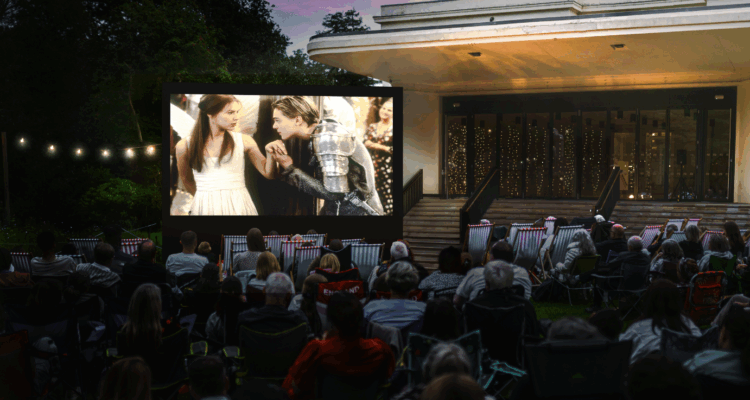BBC Free Thinking Festival: Going Sane
Hands up... are you sane? (A few hands hover in the air)... Insane? (A similar number of hands are thrusted more vivaciously)... Bit of both? (The 'masses' raise their hands now). What is it that constitutes these notions? As part of the BBC Free Thinking festival, Adam Phillips joined Philip Davis and sixty hungry readers for The Reader's ‘Book at Breakfast' event in a conversation about the concepts of ‘sanity' and ‘insanity' arising from Phillip's book Going Sane. In a world that is preoccupied with insanity, or a world that is perhaps itself insane, we show little interest in sanity. Why is this? Is it too boring? Is there not enough excitement around the ‘sane' to appeal to our inquisitiveness? Sanity could be considered something inherent, a ‘true sanity', that gets lost as external surroundings infiltrate our consciousness and that we therefore need to rediscover, or it could be that sanity is a fluid and adaptable notion that changes with social expectations. It is Laing's view that we are fundamentally sane beings estranged into a false sanity by societies to which we are obliged, 'against the grain', to adjust. Our ‘true' sanity is not one of compliance or submission but being "more of a piece with our ‘deeper', ‘truer', inner selves", less alienated from what gives life its real value.
Hölderlin, Clare, Rimbaud, Van Gogh, Nietzsche, Artaud are exemplary because they remind us of our ‘true' sanity (of course, in actuality, most artists don't, and never have, gone mad). True sanity is whatever it is about us that refuses to sacrifice our inner worlds, our singular visions, in order to get on in the outer world, the world as it is. True sanity transforms the world as it is to make room for the unique vision that each individual person contains inside them. These artists were truly sane because they never sold out; they never tried to make themselves acceptable or winning.
Or is this just madness? Does sanity need to be something that is socially acceptable and therefore, mean that social unacceptability is an indication of insanity? Madness is often romanticised in our cultural arts, in the sense of the ‘tortured artist' and the people that are ‘mad, bad and dangerous to know' but what in fact does this label ‘madness' mean? Is there an inherent connection between creativity and madness? Or is this form of madness actually saneness?
Insanity is as hard to categorise as sanity but we pay it far more attention. To admit to being ‘sane' seems to somehow admit to being ‘boring', which is something that Phillips is disparaging of. Phillips wants to bring sanity out of the shadows and in his book, he begins to investigate what in fact it means to be sane, what the characteristics of sanity are and to what extent we meet them (if at all).
The event began with Phillips and Davis in discussion, followed by the audience gathered in groups around tables (with coffee and cake) to consider the issues arising from the book, talk about their own views of sanity and insanity, and culminating with a question and answer session. The group that I was in consisted of (amongst others) a mental health professional, the wife of a man with Asperger's Syndrome, a recovering drug addict, an alcoholic, and an elderly lady. Each of us had our own ‘insane' or ‘mad' personal experiences but for such a diverse collection of people, we were all able to find resonances in what each was saying (as well as reassure one another that we were indeed ‘sane') and come to a few conclusions about what we believed sanity could be: a form of acceptance, in which we realise that our ‘mad' actions were just that, means that we possess a certain level of sanity. For instance, the detrimental effects of taking drugs are not seen as such until a sense of awareness, has occurred in the abuser. Of course it cannot be said that acceptance is all that constitutes ‘sanity', in fact the morning's discussion made us all aware that sanity is actually indefinable. Phillips argued against the notion that sanity is another word for conformity, this is too dry and far too simple, instead he thought that sanity was partly 'excitement rather than anxiety about what crosses your life's path'.
Although madness is far too often glamorised, to get to the root of ‘true sanity' seems itself a crazy task, an act that would lead to such intense introspection to probably render all attempts of saneness useless. Language itself is liberating in one capacity and constricting in another: we can only explain our sanity in terms of our language but the means of expressing insanity are unbounded. We can show that we're mad but we have to explain that we're sane.
For the last word here’s Borges, as delivered by Mick Jagger: 'The only performance that really makes it, that makes it all the way, is the one that leads to madness' (from ‘Performance’, 1968). A true performer becomes true only to himself, residing only in his own skull.'
Posted by Jen Tomkins
Share
Related Articles

Storybarn Book of the Month: Saving the Butterfly
This month, as part of Refugee Week (16-22 June), we've been taking a look back at one of our favourites…

Open Air Cinema FAQ’s
If you were able to snap up tickets to our brand new Open Air Cinema, check below for any queries…

New Liverpool open air cinema brings movies to the Mansion
NEW FOR 2025: Eight handpicked films will hit the big screen in Calderstones Park this summer as national Shared Reading…


